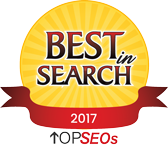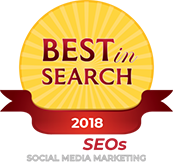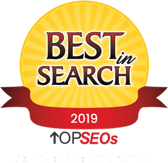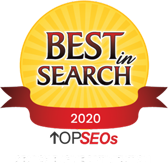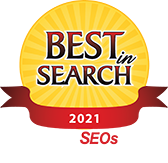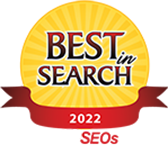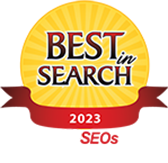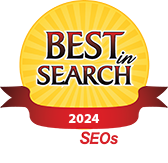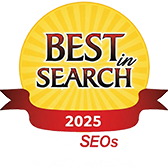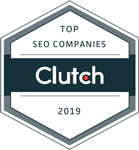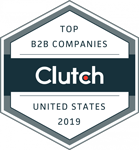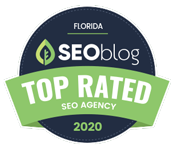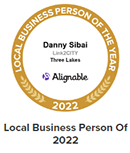
Budgeting Facebook Ads for Small Business: A 2025 Guide
Budgeting Facebook Ads for Small Business-A Guide 2025 covers all small business matters of PPC management. Learn tips, examples, and strategies for obtaining better results.
Published June 1, 2025 | Your Company Name
Welcome to our thorough guide covering PPC management for small businesses. If this is your initial campaign, or the refinement of your existing marketing strategy through Facebook ads, this article will take you through the concept of budgeting and managing advertisements toward growth-a notion much in consideration in a competitive landscape of 2025.
What is PPC management for small businesses?
Now, the term PPC refers to Pay-Per-Click, and its management targets fine-tuning, running, and keeping paid search engine advertising campaigns in order to get the best return on investment. Especially for smaller companies with tight budgets, a successful operation in PPC management has to be relied upon using platforms such as Facebook Ads.
In practical terms, PPC management involves deciding:
- How much you should spend daily or monthly on ads
- Which audience segments to target
- How to design compelling ad creatives and copy
- When and where to display ads based on performance data
On occasion, depending on whose list it is, Facebook stays the best pick for small businesses in 2025, due to granular targeting tools, engaging ad visuals, and the very large audience. If a small-business owner works hand in hand with PPC tactics to establish mutual support, then that person could very efficiently take advantage of scarce resources to at least first-building brand awareness for his clients and then converting and maximizing ROAS.
Why PPC management for small businesses Matters for Paid Advertising Strategy
Every penny holds importance in running a small business; advertising is no exception. Lacking the right PPC methods puts any ad budget at risk of being drained fast with little to show for it.
The most-effective management of PPC for small companies takes into account goals, analytics, and creativity. A data-driven approach allows for the following:
- Eliminate poor-performing ads before they drain your budget
- A/B test various creatives to find top performers
- Target warm leads with remarketing techniques
- Improve cost-per-click by refining audience targeting
Applying smart PPC principles integrated with a laser-focused facebook advertising approach allows teams, even the very small ones, to reach targeted consumers in a manner that allows for sheer precision and scalability.
Think about it: Imagine, a local bakery owner using Facebook advertising to promote a weekend discount offer to people in the vicinity engaged between 25 and 55 and interested in baking. Location, interest, and demographic filtering are a good strategy as they target a hungry group of people willing to act. That is the strength of targeted PPC management along with sound planning.
Real-World Example: Small Retail Shop with Limited Ad Budget
Take the case of a small boutique that has a $500 monthly advertising budget. With an effective PPC management plan, the owner breaks the budget into:
- $300 for awareness-level ads that build brand visibility
- $150 for engagement ads targeting active users
- $50 for remarketing to website visitors or those who abandoned cart
The boutique also adjusted ad placements to be primarily focused on mobile feeds and used Facebook's 'Advantage+ Shopping Campaigns' to further automate performance enhancement. A 4X ROI over a month was achieved. The secret lay not in spending more but in spending wisely.
This story is just one of many. Small business owners in restaurants, eCommerce, and professional services gain actual value if a digital marketing plan is worked around a realistic budget.
Setting Goals for Your Facebook Advertising Strategy in 2025
The missing part of any good Facebook ad strategy is always to have set some clear objectives. Do you seek to create awareness, pull sales, lead generation, or sign-ups into a newsletter? This will help ensure that your money is not spent on useless things that do not match up with the business priorities.
For instance:
- Brand Awareness: Impressions, reach, and ad recall
- Sales: Cost per purchase, ROAS (Return On Ad Spend)
- Leads: Cost per lead, landing page conversions
- Engagement: Click-through rate (CTR), likes, shares, comments
When the goals are finalized, the budget has to be set with the creative concept. It is possible that a promotional video generates user engagement, whereas carousel ads showing multiple products work well in converting ready-to-buy users.
Launching Smart Ads Within Your Budget
So is the place where the rubber will meet the road. Not just is it possible to launch a successful Facebook ad on a shoestring budget; actually, with automation tools, real-time insights, and flexible budgeting options, it is only getting easier in 2025.
Best practices include:
- Use Campaign Budget Optimization (CBO): Permit Facebook to distribute funds automatically among the best-performing ad sets.
- Start with a small daily budget: $5–$10 per day in testing phase
- Utilize Facebook Pixel: Enhance conversion tracking and future retargeting
- Invest in custom audiences: Use customers lists, website data, and people who look alike.
In the next section, some advanced techniques along with a detailed week-by-week walk-through will be in focus to enlighten you on the consistency of campaign improvement. This is strictly for the do-it-yourself entrepreneurs willing to do the actual implementation.
Continue reading Part 2 to supercharge your Facebook Ads with optimization methods, customer targeting hacks, and ROI tips.
Top PPC platforms for small businesses
One of the very important aspects of process management for small businesses is choosing the right platform for its needs. Each of the platforms offers unique advantages, into targeting and pricing models which aim at differing goals and audience types. The breakdown herein lists the most popular PPC platforms and how they serve small businesses.
Google Ads
In all likelihood, the most extensively used platform, Google Ads, gives businesses the opportunity to publish ads on search engine results pages (SERPs) of Google or display ads across the Google Display Network, or even do some video advertising on YouTube. Because of its wide reach with a huge targeting system, it is a great choice for any small company to seek maximum visibility and ROI.
Facebook Ads
Facebook ads, once properly utilized, can be the real deal for a business. Facebook Ads can be found because of finely based demographic and interest targeting into very tight groups of consumers. Thus, it's a cheap platform for small businesses to run trial campaigns for buttons.
Instagram Ads
The mechanism for running and managing Instagram Ads is via this very Facebook Ads Interface. This interface amalgamation is handy to a small business to keep a single ad strategy across the two platforms. On Instagram, a visual-heavy niche such as fashion, food, and lifestyle has a huge amount of leverage.
Bing (Microsoft) Ads
Bing Ads has a smaller market share compared to Google; hence it also stands as a high-reward environment with less competition. For firms targeting an upper-end or older demographic, Bing would be a strategic complement to Google Ads.
LinkedIn Ads
LinkedIn ads afford, for smaller B2B businesses, the unique possibility of targeting by job title, industry, company size, and so forth, and it shall aid anyone who relies on professional relationships to proceed with his business.
How to measure success of PPC campaigns
No matter how successful an implementation of a paid advertising strategy is, it is incomplete without measurement of performance of its campaigns. The success of PPC management for small businesses is, therefore, measured on basis of strategic analysis of key performance indicators, called KPIs, like:
- Click-Through Rate: Having a really high CTR that means that your ad is actually resonating with the audience and creating some kind of engagement.
- Conversion Rate: Conversion rates are typically defined as a percentage of clicks that create the response you're actually looking for-a sale, a lead form submission or an inquiry.
- Cost Per Click (CPC): CPC must always be consistent with budget and goals of return on investment (ROI). Having this constant CPC with the highest conversion benefits you the most with regard to spending on advertising.
- Quality Score: For Google's service: Based on the ad relevance, CTR, and landing page quality. The higher the Quality Score, the lesser you pay for your ads.
- Return on Ad Spend (ROAS): This metric comparing income data with the ad-spend data is used mostly to assess profitability.
Common PPC mistakes small businesses should avoid
A kay paid advertisement strategy notwithstanding, small businesses might run into pitfalls if wrongfully managed. Look for the following:
Lack of Audience Targeting
An ad great enough is one that sells. Somehow, the ad still may be thrown away with other junk if it doesn't make an impression on its intended audience or if the targeting is too broad. Correct targeting means users are put on the site only when there is a potential interest for engagement or conversion into paying customers.
Setting and Forgetting Campaigns
Weekly analysis, observation, testing, and improvement are the key considerations for making the most out of a PPC campaign for small businesses. Negligence would mean wasting the budget and accrued losses.
Ignoring Negative Keyword Lists
If you fail to use the proper negative keywords against your ads, they might be presented to irrelevant or low-intent searches, which can facilitate an expeditious drain of its budget. This list should always be kept up to date to provide ongoing relevance to your-negative-ads.
Underutilizing Ad Extensions
Ad extensions like site links, callouts, and location info can really push CTR and ad engagement. Many small businesses simply do not make the most of these features.
Inconsistent Landing Pages
The act of pushing users into generic or unrelated landing pages can do a disservice to the ad Quality Score, increasing bounce rates along the way. Make sure that the landing pages are relevant and are in alignment with the ad copy, with value clearly defined to the visitor.
Integrating PPC with a facebook advertising strategy
When managed properly alongside Facebook advertising, a small business can certainly establish a stronger presence for its brand and add to its customer base. Facebook Ads will handle the awareness-oriented traffic at the top of the funnel, while PPC search ads get down to intent-driven traffic. This allows for a full-funnel journey to be created as these platforms work in tandem-from discovery to conversion.
Specifically, small businesses can harness Facebook's retargeting tools to bring back users who found their way to the site through Google Ads and did not convert. By contrast, perhaps the information obtained from creatives performing well on Facebook can offer ideas for better ad copy for PPC campaigns. When both platforms are used in concert, they support a more cohesive and less costly Paid Advertising Strategy.
PPC Management for Small Businesses: A Complete Strategy in 2024
In today's fast-paced digital world, small-business PPC management can definitely mean growth, visibility, and customers. With the inclusion of hyper-targeted ads on Google and Facebook, a small-business owner must adopt smart strategies to keep up with his or her competition. In this very last section, everything goes back into one storyline, giving you a step-by-step way to boosting marketing ROI.
Combining PPC With Your Facebook Advertising Strategy
Facebook stands as one of the most powerful medium for small business advertising. Nevertheless, if one ends up setting up poor facebook advertising strategy, it ends up with a lot of wastage of money and little to gains in return. Uniting PPC management for small businesses with the targeting tools could assist in setting up multi-channel campaigns that bring in steady traffic comprising quality visitors to your website.
A successful facebook advertising strategy should include:
- Creating associations with Facebook's lookalike categories and demographic filters for audience segmentation.
- Messaging relative to ad placement (i.e., Stories, Feed, Marketplace).
- Using pixel data to retarget website visitors and encourage conversions
PPC is not limited on Google Ads or Facebook; Instead, users end up encountering different touchpoints which only increase their chances of conversion and notices of brand recall.
Leveraging Data-Driven Decisions
PPC management for small businesses is all about relying on data for better decisions. Using Google Ads, Facebook Ads Manager, and a performance analytics guide at your disposal, you may track the keywords, creatives, and audience that perform best for return on your investment.
The indicator KPIs like the click-through rate (CTR), cost per acquisition, and return on ad spend are regarded as a scale to gauge performance consistently. Testing, refining, and from the accumulated data, scaling will make your campaigns evolve in real-time.
Common Challenges and How to Overcome Them
Most little entrepreneurs have these challenges when embarking on PPC campaigns:
- Scarce budget: Go for high intent keywords and conduct geo-targeting to avoid extraneous traffic.
- Lack of technical prowess: One can overcome such a deficiency by adopting a digital marketing company or use user-friendly software for managing the entire campaigns.
- Low conversion rates: Enhance conversion rates with A/B testing, better quality images, and strong calls to action.
Check out this case study that highlights small businesses using budget-friendly PPC campaigns to triple their lead generation within months.
Frequently Asked Questions
What is PPC management for small businesses in simple terms?
PPC management for small businesses is really just a paradigm or concept through which the evolution is possible in terms of such a small business's Facebook Advertising strategy in a structured, intentional way.
How does PPC management for small businesses help?
It warps performance enhancements wherein your content is made to be in line with search behavior and industry best practice.
Can I apply PPC management for small businesses myself?
Absolutely. Providing the tools and structure, even a beginner can begin putting these into practice according to their own will.
What tools should I use?
Google Search Console, SEMrush, and keyword research tools are used from the start as they provide visibility into how PPC management for small businesses does affect performance.
Next Steps
Getting started need not be a scary thought. Be it a beginner or someone polishing existing digital ads, the next step to take is to strategize, track, and optimize. Set measurable goals, proceed from smaller ventures, and gradually scale up once you are aware of what works.🔔 Launch smart ads within your budget — let us help you create a high-impact PPC strategy that grows your small business without wasting a dollar.




